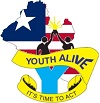
When applied to Sexual and Reproductive Health and Rights (SRHR), power mapping can be a useful approach to identify key actors and stakeholders, their interests, and the dynamics that impact SRHR policies, programs, and access to services.
Youth Alive Liberia conducted a Capacity and Power Mapping assessment in Montserrado County in five communities, focusing on the regular contact and accessibility of Sexual reproductive health and rights (SRHR) within the selected community. It was also meant to identify prevailing and potential partners and key stakeholders with an interest in the decision-making process as it relates to SRHR within the community. During the power Mapping assessment, 16 people from 5 communities (9 male and 8 Female) with diverse positions were interviewed.
During the interaction with the community dwellers, it was unanimously pointed out that their communities are structured in a very special way. They highlighted the chairman, Chairlady, Elders Council, Youth Leader, and Secretary as the most common leadership positions used in most communities.
Most of our communities are led by the community chairman. very few are chaired by women because of empowerment
Power mapping is a strategic tool used to identify and analyze power dynamics and relationships within a particular context or issue. It helps to understand who holds power, how power is exercised, and how it can be influenced or shifted. In this case, this was done to help the organization identify strategies for engaging stakeholders and key decision-makers during project implementation.
While most of the people we talked to confirmed that the community chairman is the highest rank within the communities, both men and women are influential people in their community. Asked whether they understand SRHR, most of them said they don’t understand. They could only mention sexual gender-based violence, and most of them said that the cases are usually reported to the community chairman before being reported to the police station. This is a clear indication of the gap in SRHR access and the limited knowledge of reporting and referral pathways for GBV and other rights violation cases.

Most of the community dwellers that were interviewed said they are not aware of safe and legal abortion services in their community therefore, they are asking NGOs and health workers to continue with the awareness in all the communities for young girls and women because unsafe abortion is rampant, which is a risk for the women and girls. They insisted that laws should be crafted that will allow and promote the right to legal safe abortion. Awareness of menstrual hygiene was also identified as very important because that will inform females about the various method of care.
Most of us don’t know about safe abortion, the girls use local means to remove belle and some of them risk their lives.
There were diverse views on Female Genital Mutilation (FGM) practices as some of them supported the practice, saying it is good because it is part of the culture in Liberia and insisted on the continuity of the practice to preserve culture. However, a cross-section of the people interviewed said it is bad practice affecting women and insisted that a law should be put in place to stop the practice.
Youth Alive intends to incorporate these lessons to promote policies, programs, and advocacy efforts, by working with stakeholders toward ensuring universal access to SRHR and preventing harmful practices such as FGM, thereby promoting the well-being and rights of women and girls. Achieving lasting changes requires long-term commitment and sustainable interventions.
If there are laws that can be brought to ensure that girls are protected from these harmful things like abortion then it will be good.
